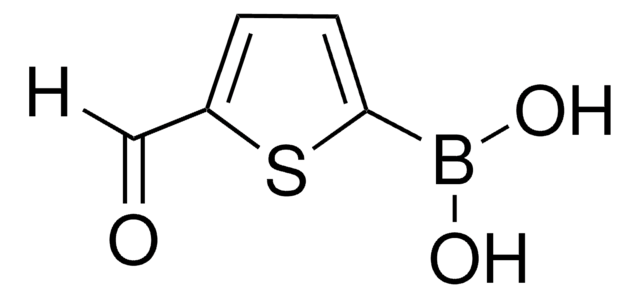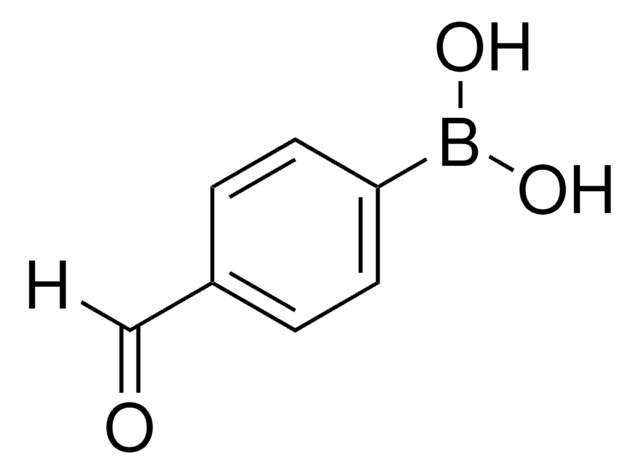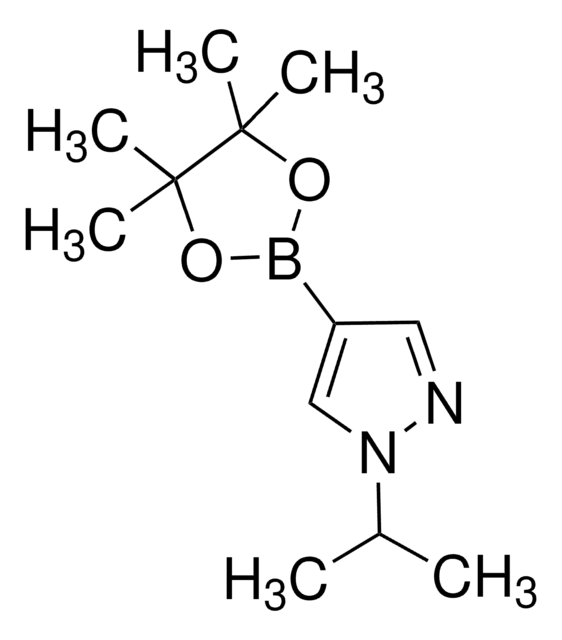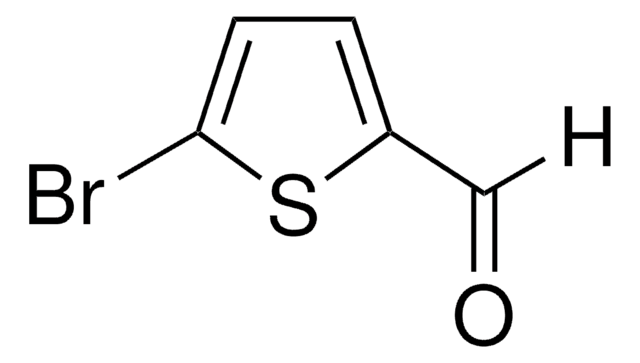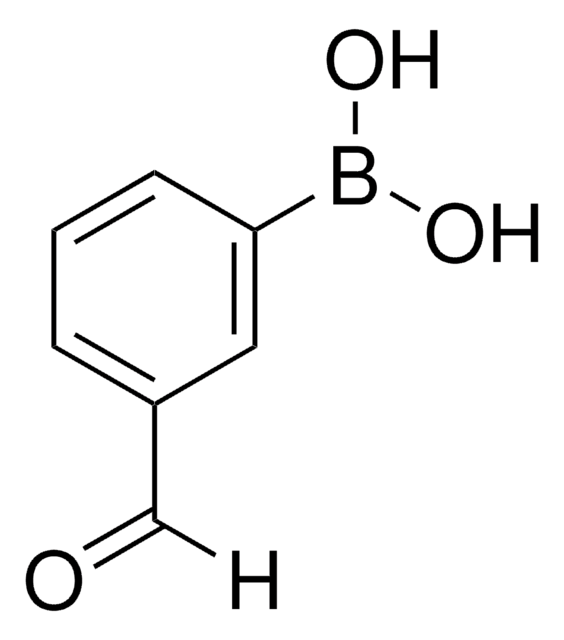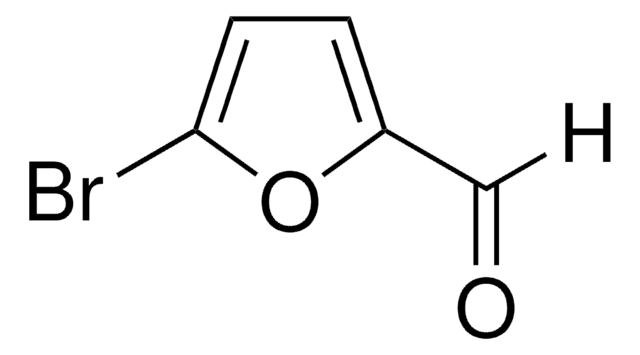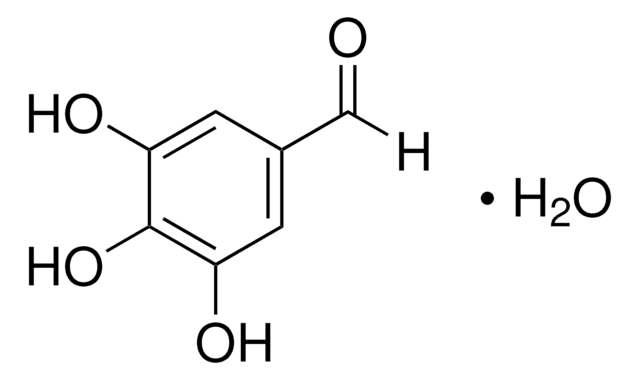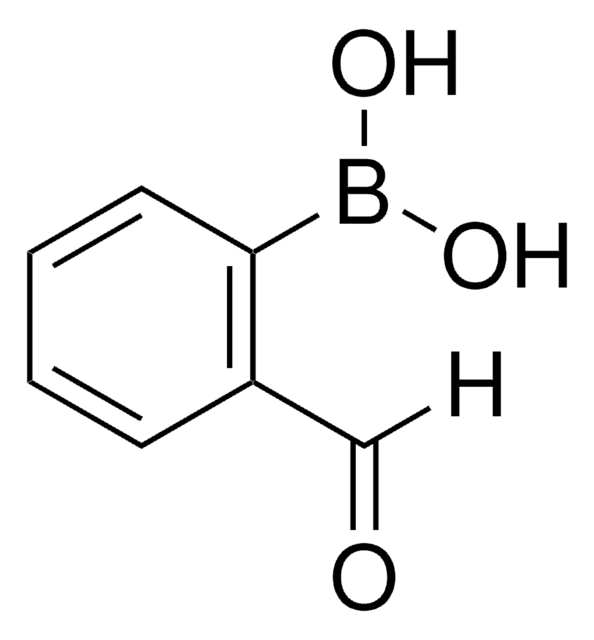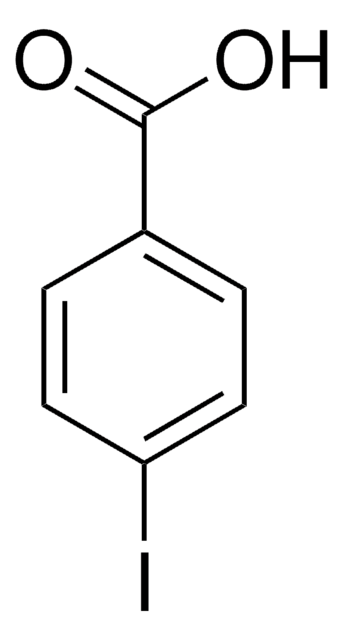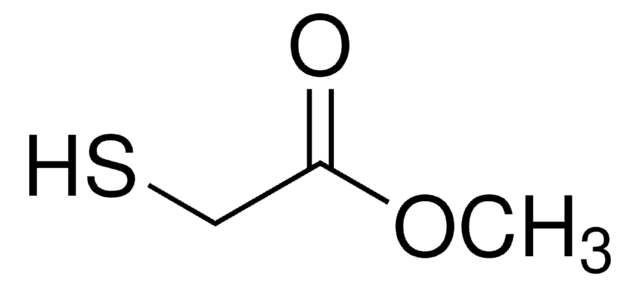512346
5-Formyl-2-furanylboronic acid
≥95%
Synonym(s):
5-Formyl-2-furanboronic acid
Sign Into View Organizational & Contract Pricing
All Photos(3)
About This Item
Empirical Formula (Hill Notation):
C5H5BO4
CAS Number:
Molecular Weight:
139.90
MDL number:
UNSPSC Code:
12352103
PubChem Substance ID:
NACRES:
NA.22
Recommended Products
Quality Level
Assay
≥95%
form
solid
mp
136 °C (dec.) (lit.)
SMILES string
OB(O)c1ccc(C=O)o1
InChI
1S/C5H5BO4/c7-3-4-1-2-5(10-4)6(8)9/h1-3,8-9H
InChI key
JUWYQISLQJRRNT-UHFFFAOYSA-N
Related Categories
Application
Reactant involved in Suzuki coupling for synthesis of stable dye-senstitized solar cells
Reactant involved in synthesis of biologically active molecules including:
Reactant involved in synthesis of biologically active molecules including:
- Heteroarylation for the synthesis of HIF-1 inhibitors
- Disalicylic acid-furanyl derivatives to inhibit ephrin binding
- HIV-1 integrase inhibitors
- Epidermal growth factor receptor inhibitors
Other Notes
Contains varying amounts of anhydride
Signal Word
Danger
Hazard Statements
Precautionary Statements
Hazard Classifications
Skin Corr. 1B
Storage Class Code
8A - Combustible, corrosive hazardous materials
WGK
WGK 3
Flash Point(F)
Not applicable
Flash Point(C)
Not applicable
Personal Protective Equipment
dust mask type N95 (US), Eyeshields, Gloves
Certificates of Analysis (COA)
Search for Certificates of Analysis (COA) by entering the products Lot/Batch Number. Lot and Batch Numbers can be found on a product’s label following the words ‘Lot’ or ‘Batch’.
Already Own This Product?
Find documentation for the products that you have recently purchased in the Document Library.
Customers Also Viewed
Qi Xia et al.
ACS applied materials & interfaces, 10(20), 17081-17088 (2018-05-03)
Effective long-term monitoring of tumor growth is significant for the evaluation of cancer therapy. Aggregation-induced emission-active near-infrared (NIR) fluorescent organic nanoparticles (TPFE-Rho dots) are designed and synthesized for long-term in vitro cell tracking and in vivo monitoring of tumor growth.
Marika Tiberi et al.
Antimicrobial agents and chemotherapy, 58(6), 3043-3052 (2014-03-13)
We report here the synthesis of 2-aminothiazolones along with their biological properties as novel anti-HIV agents. Such compounds have proven to act through the inhibition of the gp120-CD4 protein-protein interaction that occurs at the very early stage of the HIV-1
Our team of scientists has experience in all areas of research including Life Science, Material Science, Chemical Synthesis, Chromatography, Analytical and many others.
Contact Technical Service